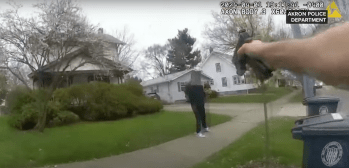Attorney Lisa Bloom calls the George Zimmerman verdict a miscarriage of justice. She says, when the case was over, she just couldn’t get it out of her head. Bloom conducted her own investigation into the trial to find out what “went wrong” and says the prosecution bumbled the case. Bloom joined Roland Martin on Thursday’s “NewsOne Now” to explain exactly how and her new book on the case, “Suspicion Nation.”
Listen to Bloom detail how the Zimmerman case was botched.
An excerpt from Bloom’s “Suspicion Nation”:
Introduction: The Sixth Juror
Maddy had had it. The trial wasn’t over, but she was out of there. Rules or no rules, she was leaving. “If they had to put me in jail for going home, then put me in jail.” Three weeks of sequestration with five white women who didn’t understand the first thing about her, who demeaned and mocked and trivialized her, was more than enough. As the only minority juror in the nation’s most watched and most racially charged case in decades, she was done.
As a thirty-six-year-old olive-skinned Puerto Rican woman, Maddy had been doubly lonely since the first week of trial. (Most juries in America have twelve members; Florida has six-person juries in all but death penalty cases, and in this case all six were female.) Judge Debra Nelson had ordered the six women sequestered, requiring them to leave their families for the duration of the trial, booking them in a local hotel under the careful watch of the sheriff’s deputies, with occasional phone calls and weeklyvisits with family members. But Maddy had isolated herself even further, mostly staying in her room, away from the other jurors, securing herself from their words and cruel laughter and judgments about her.
She had no idea how bewildering and hurtful it would all be, nor how huge this trial was for Sanford, Florida, and the nation, which became captivated by the explosive case. On February 26, 2012, the night that Trayvon Martin was shot, Maddy wasn’t even living in Florida, but in faraway Chicago, with her husband and seven children. Who had time to watch the news about a crime in a distant state? Between work and raising her family, Maddy was busy. Besides, the news was depressing. She got the weather on her phone, and that was all she felt she needed to know.
Just four months after Maddy and her family moved to central Florida in early 2013, Maddy’s jury summons appeared. She couldn’t believe it. And she’d just had a new baby girl. She could have easily evaded jury duty by saying she was breastfeeding, she learned, but she refused to lie, because lying is wrong.
As a nursing home caregiver, Maddy had no experience with the American court system, which seemed alien to her, conducted in a harsh foreign tongue. While being questioned at length by meticulous defense attorney Don West during jury selection, she felt confused and intimidated—Was she on trial? What had she done wrong? Why did he keep asking her what TV shows she watched, what newspapers she read? Was he accusing her of lying? Of being stupid? “They made me feel so guilty of something I didn’t even do,” she said. Only bad people had to go to court, she believed—just being in the courtroom made her feel like she must have done something wrong. “I don’t know who George Zimmerman is, I really don’t!” She kept telling them, but they kept asking anyway, the same question from different angles, because they wanted to be sure to seat jurors like Maddy who had not been tainted by pretrial publicity. It was exhausting her. The unnerving way Don West looked directly at her, as if he could read her mind—she’d never experienced anything like it and hoped never to feel so cross-examined again. “He scared the hell out of me. I cried when I came out [of jury selection],” she said.
“There he is!” other jurors whispered to her when they first saw stone-faced George Zimmerman, the accused murderer, across the small courtroom. They already knew more than she did. Who? Maddy thought, knowing that she was already falling behind. Business suits were so alien to her that she called them tuxedos. “I believed anybody who’s got a tuxedo on is a lawyer,” she said. So she concluded that Zimmerman, in his suit, was a lawyer too.
Assistant state attorney John Guy began the proceedings with, “Fucking punks! These assholes, they always get away.” Rattled by the obscene language, Maddy did not hear the explanation, that these were Zimmerman’s words on his recorded police call, which he made upon seeing Trayvon Martin for the first time, words that would become important later, so the prosecutor was using them now for dramatic effect.
All she knew was that the solemnity of the courtroom was shattered as the first attorney to speak at the trial was unnervingly profane. During his defense opening statement, Don West awkwardly tried to break the tension in the courtroom with a knock-knock joke:
Knock knock!
Who’s there?
George Zimmerman.
George Zimmerman who?
All right, good, you’re on the jury.
Maddy didn’t understand the joke: “I just didn’t get it.” Who was George Zimmerman? Why did everyone in the courtroom except her seem to know all about him? Was he one of the lawyers, or the one accused of the shooting? But he’d admitted to the shooting, right? So why was a trial happening?
“I felt naive and dumb from the beginning,” Maddy said. And her gnawing unease mounted each day the trial went on.
Read more of SUSPICION NATION here.
Be sure to listen to “NewsOne Now” with Roland Martin, weekdays at 7 a.m. EST and watch at 9 a.m. EST on TV One.
























